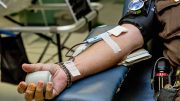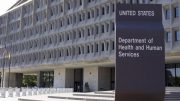The United Nations Development Program has called for international action to secure rights and equality for transgender people. In a new paper titled “Transgender Health and Human Rights,” the UNDP writes: “All human beings are born free and equal in dignity and rights. Trans people have these same human rights.”
The paper emphasizes the importance of “trans social inclusion”—transgender people’s inclusion in society on an equal basis with others: “It is impossible to be included within a community and society if one’s very existence is denied. Yet such exclusion is routinely experienced by trans people when there are only two, binary sex options (male or female), and no legal ability to move between the two. . . The evidence in this discussion paper demonstrates the compounding impact that denial of rights in one area has on other aspects of a trans person’s life. Freedom from violence and discrimination, the right to health, and legal gender recognition are inextricably linked.” [pullquote]“It is impossible to be included within a community and society if one’s very existence is denied. Yet such exclusion is routinely experienced by trans people when there are only two, binary sex options (male or female), and no legal ability to move between the two. . . [/pullquote]
The paper includes sections on key terms related to transgender people and their use; a historical perspective on transgender issues; the risks transgender people may face regarding family violence, murder, rape, torture, and other forms of cruel, inhuman, and degrading treatment; the impact of discrimination on transgender people’s rights to education, work, and legal protection; access to general health services; and the status of transgender people’s legal rights to recognition before the law around the world.
The report includes a series of recommended action steps that United Nations staff and others can take to be more inclusive of transgender people, both in daily interactions and in their broader work, particularly in the areas of health, HIV, the rule of law, and development. It states that the UNDP and other organizations have the responsibility to support transgender people’s active and meaningful participation in decisions that affect their lives and their communities.
Syphilis Cases Rise in 2012; Rates Remain Especially High Among MSM
In 2012, men who have sex with men (MSM) accounted for three-quarters (75%) of all primary and secondary syphilis cases in the U.S., according to newly released CDC data on sexually transmitted diseases (STDs). Primary and secondary syphilis are the most infectious stages of the disease. If these are not treated adequately, they can lead to a range of serious health consequences, including visual impairment and stroke. In addition, syphilis infection increases a person’s risk of being infected with or transmitting HIV. According to CDC, surveillance data from several major cities across the U.S. indicated that an average of four in 10 MSM with syphilis are also infected with HIV.
In its STD fact sheet, CDC describes a range of factors that contribute to the rapid rise in syphilis cases among MSM during the past decade: “Although a number of individual risk behaviors (such as higher numbers of lifetime sex partners or unprotected sex) contribute to disparities in the sexual health of MSM, other social and cultural factors may also play a role. For example, MSM with lower economic status may have limited access to health care and therefore may be particularly vulnerable to poorer health outcomes compared to other men. Complex issues like homophobia and stigma can also make it difficult for gay and bisexual men to seek appropriate care and treatment.”
Report Focuses on LGBTQ Intimate Partner Violence
The National Coalition of Anti-Violence Programs (NCAVP) received 2,679 reports of intimate partner violence (IPV) affecting persons identifying as lesbian, gay, bisexual, transgender, or queer (LGBTQ) during 2012. These data were published in the 123-page report Lesbian, Gay, Bisexual, Transgender, Queer, and HIV-Affected Intimate Partner Violence in 2012, and were provided by nine NCAVP-affiliated programs across 20 states. The total number of reported LGBTQ incidents of IPV in 2012 is about 32% lower than in the previous year. However, the NCAVP believes that the reduction in IPV reports does not reflect an actual reduction in the incidence of IPV, but is instead the result of a weakened capacity of several major affiliated agencies serving LGBTQ clients. The report notes that there were 21 reported IPV-related homicides in 2013 – higher than in any previous year.
In the LGBTQ community, youth, persons of color, gay men, and transgender persons were more likely to suffer injuries, require medical attention, experience harassment, or face anti-LGBTQ bias as a result of IPV. HIV-related IPV accounted for about 2% of all reported cases in both 2011 and 2012. The report includes a series of 12 recommendations for policymakers, funders, researchers, and advocates to address IPV in the LGBTQ community.
National Black HIV/AIDS Awareness Day (February 7)
Friday, February 7, is the 14th annual National Black HIV/AIDS Awareness Day (NBHAAD). As was the case in 2012 and 2013, the theme for NBHAAD this year is: “I am My Brother’s/Sister’s Keeper: FIGHT HIV/AIDS!” According to NBHAAD organizers, the purpose of the event is to educate Blacks about the basics of HIV/AIDS in their local communities; encourage Blacks to get tested for HIV infection; encourage involvement among Blacks from all walks of life in the fight against HIV/AIDS in their communities; and to get HIV-positive Blacks connected to treatment and care services.
Fact Sheets and Reports
HIV Among African Americans. This two-page CDC fact sheet presents recent statistics, information on prevention challenges, and steps CDC is taking to address the HIV/AIDS epidemic among African Americans.
HIV/AIDS and African Americans. Web pages with detailed statistics from the Office of Minority Health.
Diagnoses of HIV Infection in the United States and Dependent Areas, 2011. This 84-page CDC report includes detailed information about HIV and AIDS cases and deaths among Blacks/African Americans and six other racial/ethnic groups. Breakdowns are also provided by age, gender, HIV transmission category, and geographic region.
Black Americans and HIV/AIDS. This two-page fact sheet from the Kaiser Family Foundation was just updated in December. It provides detailed information on HIV/AIDS among Black Americans in the following topic areas: snapshot of the epidemic, key trends and current cases, women and young people, gay and bisexual men, HIV transmission, geographic distribution of cases, access to and use of health care, HIV testing, and opinions about HIV/AIDS.
HIV and AIDS Among African Americans. This online document from Avert.org provides an extensive overview of the HIV/AIDS epidemic in Black America, complete with citations to more than 70 source research papers and reports. Topics covered include: main risk factors among African Americans; how African Americans view the epidemic; and steps being taken to combat HIV/AIDS in the African American community.
Featured Health Resources for Recent Research on HIV and Hepatitis Health Disparities and Affected Populations
Social Networks, Sexual Networks and HIV Risk in Men Who Have Sex with Men. By Y.A. Amirkhanian, in Current HIV/AIDS Reports.
Strategies to Manage the HIV Epidemic in Gay, Bisexual, and Other Men Who Have Sex with Men. By C. Beyrer, in Current Opinion in Infectious Diseases.
Project nGage: Network Supported HIV Care Engagement for Younger Black Men Who Have Sex with Men and Transgender Persons. By A. Bouris, D. Voisin, M. Pilloton, and others, in Journal of AIDS and Clinical Research.
Research Funded by the National Institutes of Health on the Health of Lesbian, Gay, Bisexual, and Transgender Populations. By R.W. Coulter, K.S. Kenst, D.J. Bowen, and others, in American Journal of Public Health.
Early Male Partnership Patterns, Social Support, and Sexual Risk Behavior Among Young Men Who Have Sex with Men. By S.N. Glick and M.R. Golden, in AIDS and Behavior.
Evidence for a Syndemic in Aging HIV-positive Gay, Bisexual, and Other MSM: Implications for a Holistic Approach to Prevention and Healthcare. By P.N. Halkitis, S.A. Kupprat, M.B. Hampton, and others, in Natural Resource Modeling. Free full text also available.
Youth, Violence and Non-Injection Drug Use: Nexus of Vulnerabilities Among Lesbian and Bisexual Sex Workers. By T. Lyons, T. Kerr, P. Duff, and others, in AIDS Care.
School-Based HIV/AIDS Education Is Associated with Reduced Risky Sexual Behaviors and Better Grades with Gender and Race/Ethnicity Differences. By Z.Q. Ma, M.A. Fisher, and L.H. Kuller, in Health Education Research.
The Influence of Sexually Explicit Online Media on Sex: Do Men Who Have Sex with Men Believe They Do What They See? By K.M. Nelson, E. Leickly, J.P. Yang, and others, in AIDS Care.
A Randomized Controlled Trial Utilizing Motivational Interviewing to Reduce HIV Risk and Drug Use in Young Gay and Bisexual Men. By J.T. Parsons, C. Lelutiu-Weinberger, M. Botsko, and S.A. Golub, in Journal of Consulting and Clinical Psychology.
Sexual Risk Trajectories Among MSM in the United States: Implications for Pre-Exposure Prophylaxis Delivery. By H.A. Pines, P.M. Gorbach, R.E. Weiss, and others, in Journal of Acquired Immune Deficiency Syndromes.
Tal Como Somos/Just As We Are: An Educational Film to Reduce Stigma Toward Gay and Bisexual Men, Transgender Individuals, and Persons Living With HIV/AIDS. By J. Ramirez-Valles, L.M. Kuhns, and D. Manjarrez, in Journal of Health Communications.
Structural Bridging Network Position is Associated with HIV Status in a Younger Black Men Who Have Sex with Men Epidemic. By N.S. Shah, J. Iveniuk, S.Q. Muth, and others, in AIDS and Behavior.
A Social-Ecological Perspective on Power and HIV/AIDS with a Sample of Men Who Have Sex with Men of Colour. By J.Y. Tan, F. Pratto, J. Paul, and K.H. Choi, in Culture, Health, and Sexuality.
*Eric Brus is the Director of HIV Health Promotion of AIDS Action Committee. This report is produced by the Health Library of the AIDS Action Committee in collaboration with the New England AIDS Education and Training Center Minority AIDS Initiative Project. The full version is available online.








